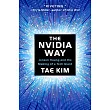Microeconomics in Context lays out the principles of microeconomics in a manner that is thorough, up to date, and relevant to students. Like its counterpart, Macroeconomics in Context, the book is uniquely attuned to economic, social, and environmental realities. The "In Context" books offer an engaging coverage of current research and policy issues from economic inequality and climate change, to taxes and globalization.
Key features include:
- Up-to-date discussions of the impacts of the COVID-19 pandemic on inequality, labor markets, and beyond
- Analysis of recent trade issues and the implications of Brexit
- Presentation of policy issues in historical, environmental, institutional, social, political, and ethical contexts--an approach that fosters critical evaluation of the standard microeconomic models
- Clear explanations of basic concepts and analytical tools, with advanced models presented in optional chapter appendices
- A powerful graphical presentation of various measures of well-being in the United States and other countries, including income inequality, tax systems, educational attainment, and environmental quality
- A focus on human well-being from a multidimensional perspective, including traditional economic metrics and factors such as health, equity, and political inclusion
- A full complement of student and instructor support materials online.
The book combines real-world relevance with a thorough grounding in multiple economic paradigms. It is the ideal textbook for modern introductory courses in microeconomics. The book’s companion website is available at: www.bu.edu/eci/micro



 天天爆殺
天天爆殺  今日66折
今日66折 

























 博客來
博客來 博客來
博客來 博客來
博客來 博客來
博客來 博客來
博客來